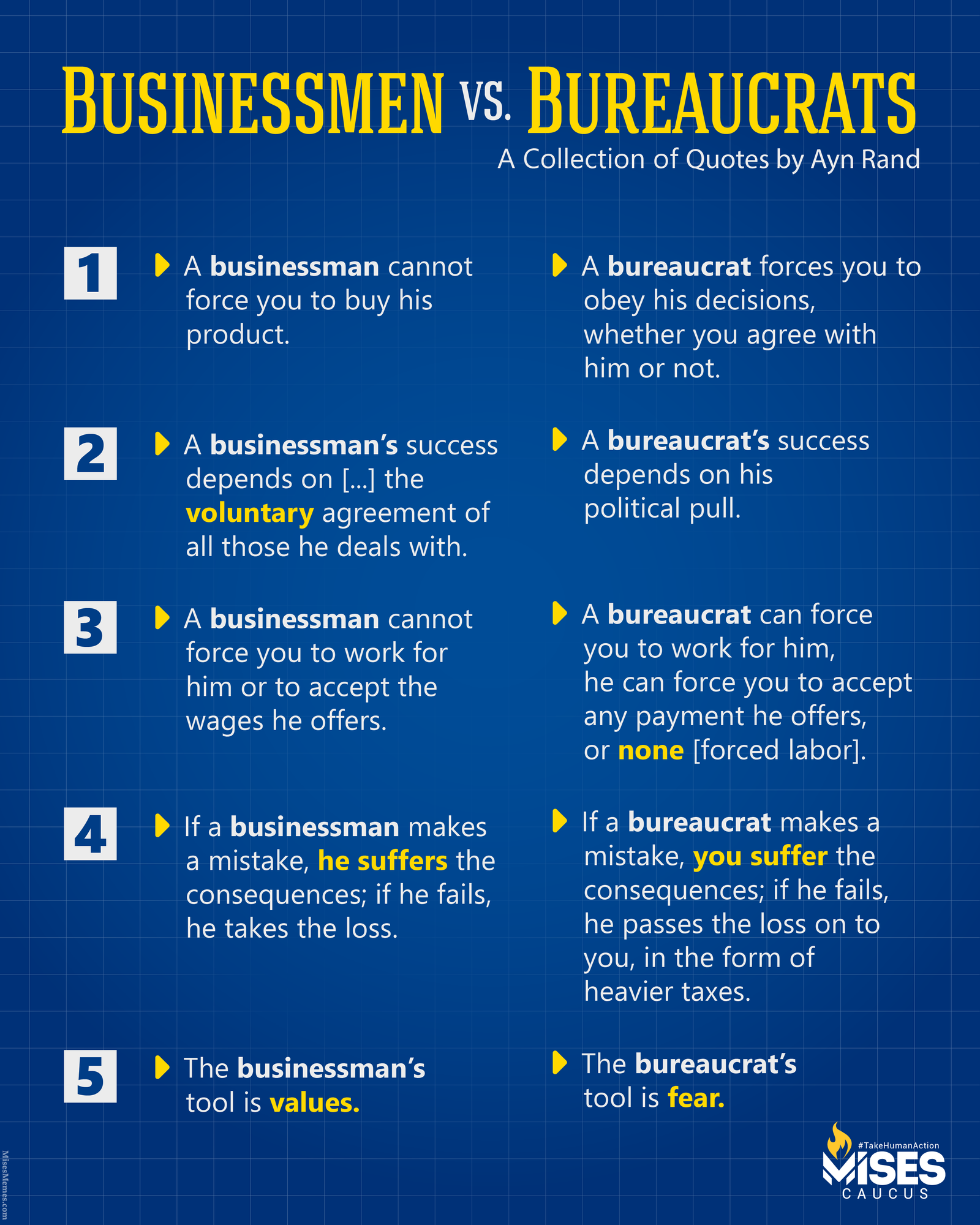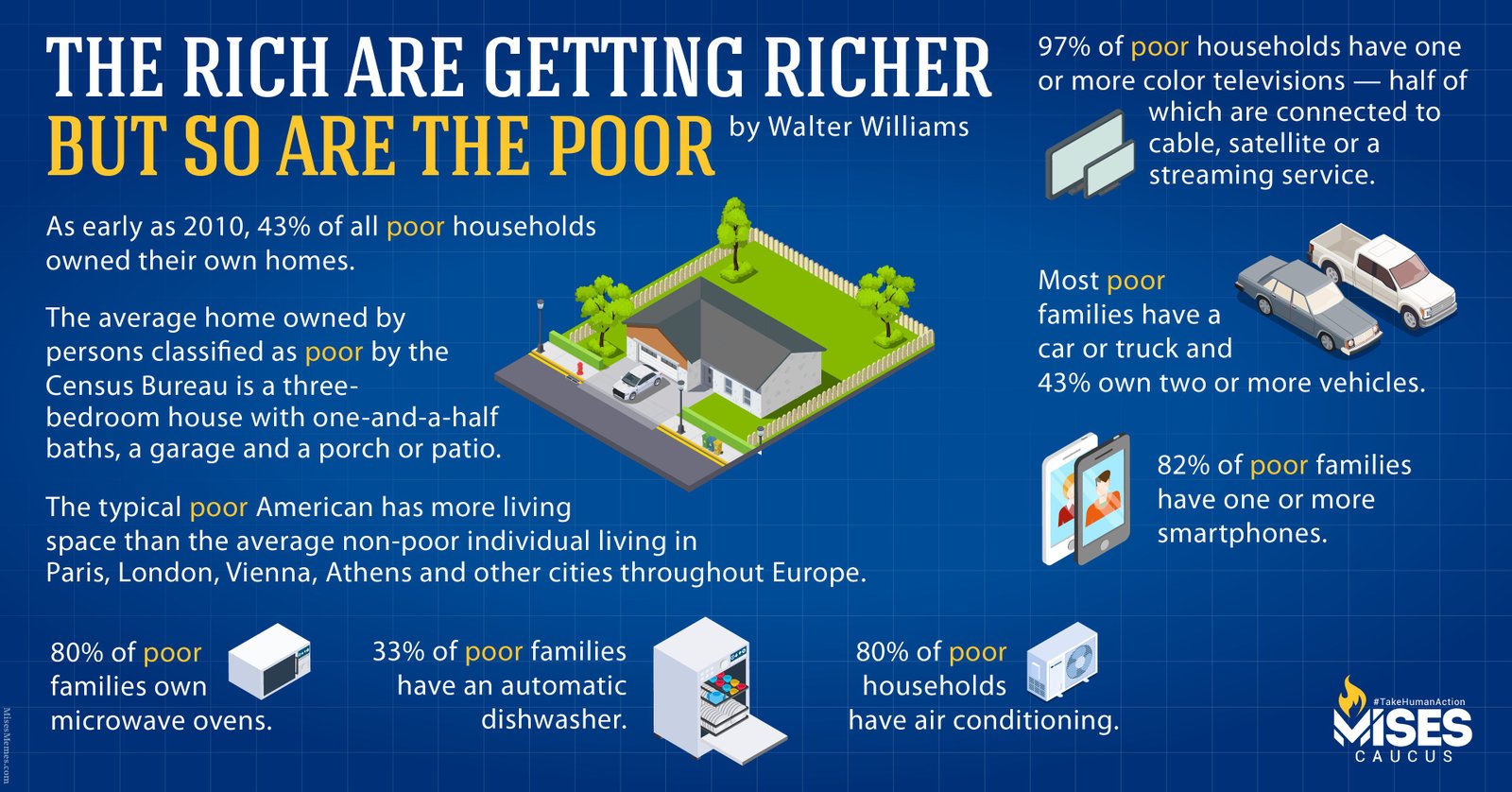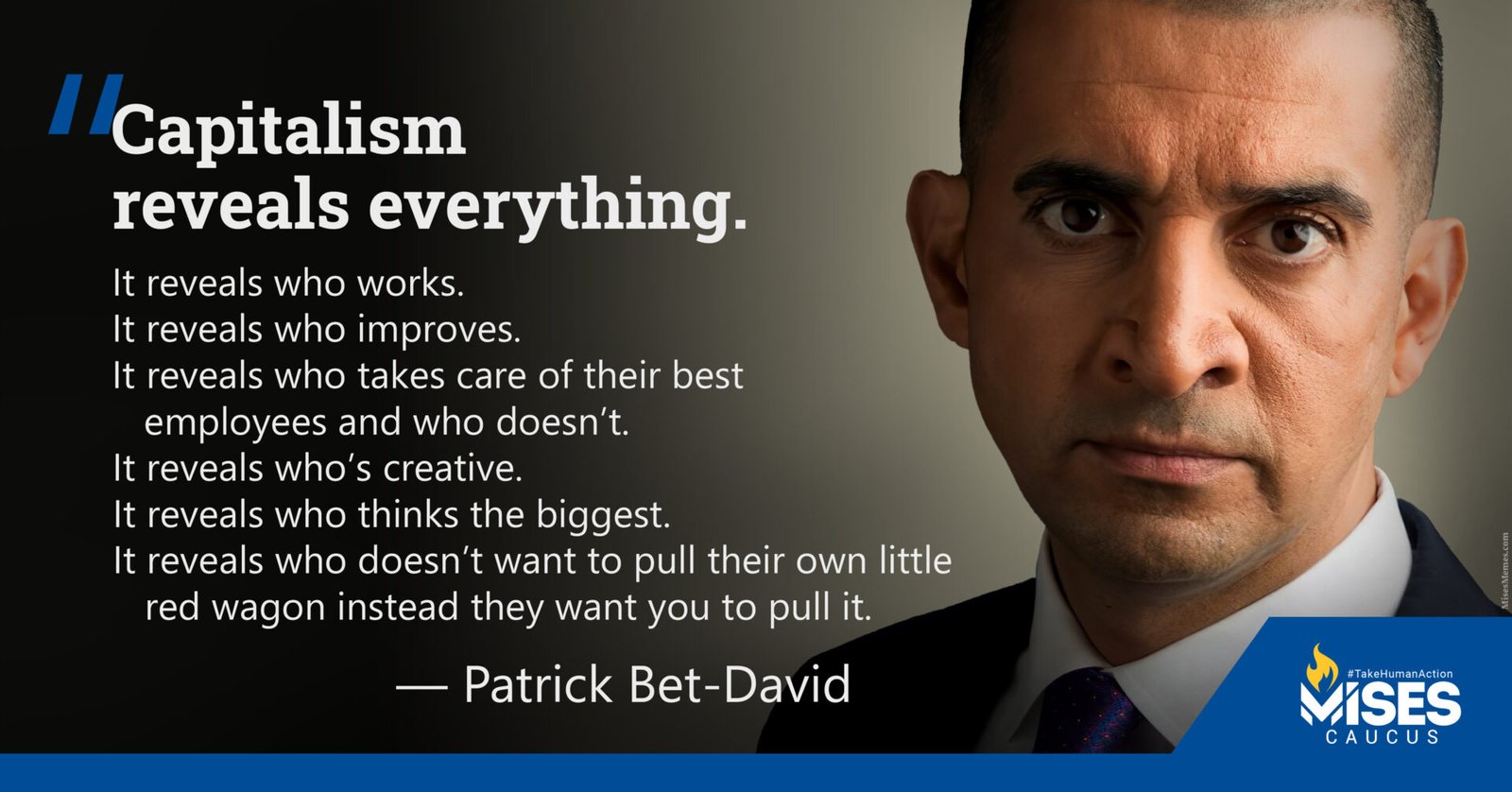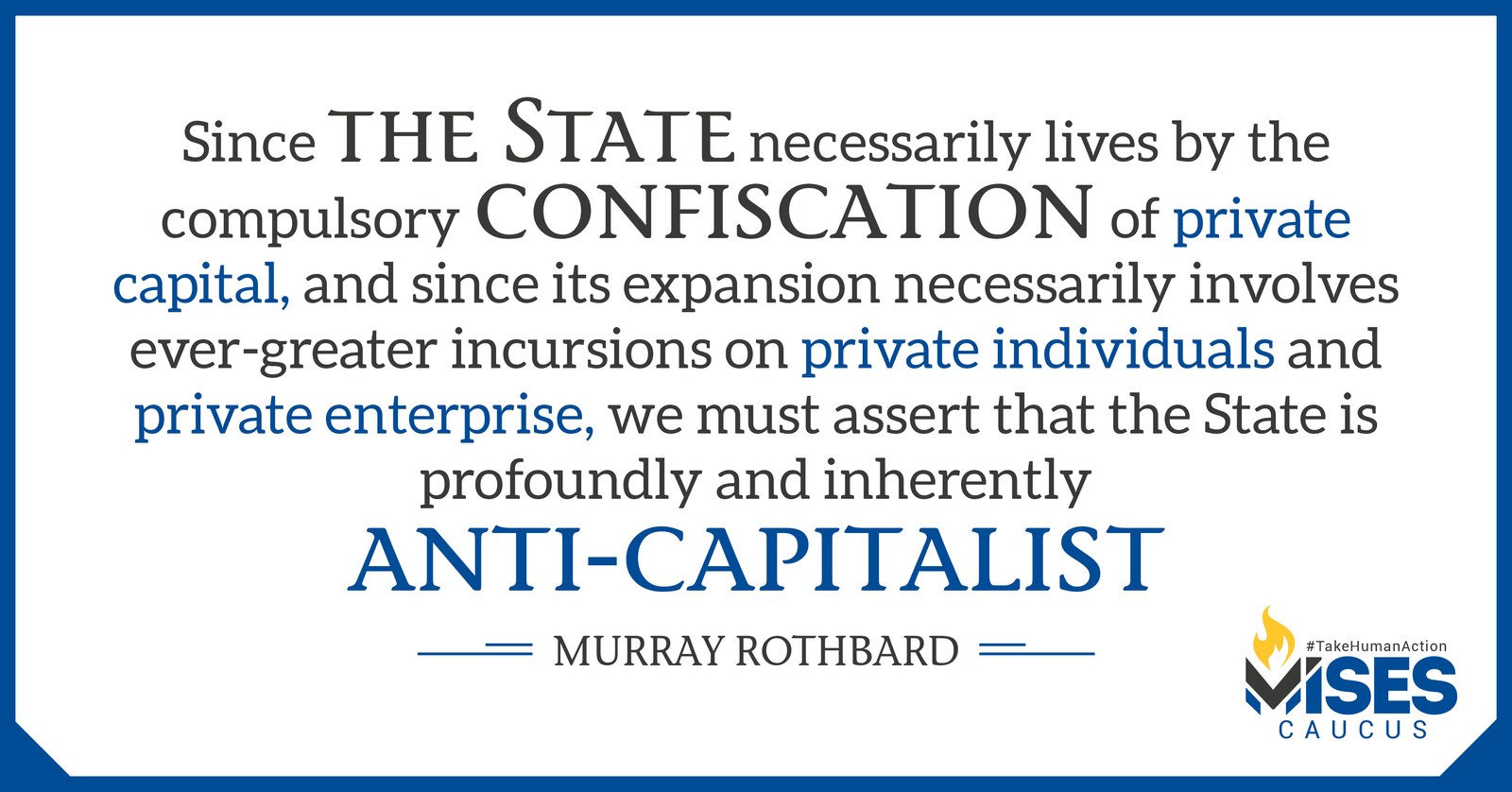Libertarianism is rejected by the modern Left, which preaches individualism but practices collectivism. Capitalism is rejected by the modern Right, which preaches enterprise but practices protectionism. —Karl Hess (The Death of Politics)


Libertarianism is rejected by the modern Left, which preaches individualism but practices collectivism. Capitalism is rejected by the modern Right, which preaches enterprise but practices protectionism. —Karl Hess (The Death of Politics)


The greatest gains against poverty in the United States occurred when government was least involved. —Tom Woods

A businessman’s success depends on his intelligence, his knowledge, his productive ability, his economic judgment—and on the voluntary agreement of all those he deals with: his customers, his suppliers, his employees, his creditors or investors. A bureaucrat’s success depends on his political pull. A businessman cannot force you to buy his product; if he makes a mistake, he suffers the consequences; if he fails, he takes the loss. A bureaucrat forces you to obey his decisions, whether you agree with him or not—and the more advanced the stage of a country’s statism, the wider and more discretionary the powers wielded by a bureaucrat. If he makes a mistake, you suffer the consequences; if he fails, he passes the loss on to you, in the form of heavier taxes.
A businessman cannot force you to work for him or to accept the wages he offers; you are free to seek employment elsewhere and to accept a better offer, if you can find it. (Remember, in this context, that jobs do not exist “in nature,” that they do not grow on trees, that someone has to create the job you need, and that that someone, the businessman, will go out of business if he pays you more than the market permits him to pay you.) A bureaucrat can force you to work for him, when he achieves the totalitarian power he seeks; he can force you to accept any payment he offers—or none, as witness the forced labor camps in the countries of full statism.
The businessman’s tool is values; the bureaucrat’s tool is fear.
—Ayn Rand
A businessman’s success depends on his intelligence, his knowledge, his productive ability, his economic judgment—and on the voluntary agreement of all those he deals with: his customers, his suppliers, his employees, his creditors or investors. A bureaucrat’s success depends on his political pull. A businessman cannot force you to buy his product; if he makes a mistake, he suffers the consequences; if he fails, he takes the loss. A bureaucrat forces you to obey his decisions, whether you agree with him or not—and the more advanced the stage of a country’s statism, the wider and more discretionary the powers wielded by a bureaucrat. If he makes a mistake, you suffer the consequences; if he fails, he passes the loss on to you, in the form of heavier taxes.
A businessman cannot force you to work for him or to accept the wages he offers; you are free to seek employment elsewhere and to accept a better offer, if you can find it. (Remember, in this context, that jobs do not exist “in nature,” that they do not grow on trees, that someone has to create the job you need, and that that someone, the businessman, will go out of business if he pays you more than the market permits him to pay you.) A bureaucrat can force you to work for him, when he achieves the totalitarian power he seeks; he can force you to accept any payment he offers—or none, as witness the forced labor camps in the countries of full statism.
The businessman’s tool is values; the bureaucrat’s tool is fear.
—Ayn Rand

Capitalism gave the world what it needed, a higher standard
of living for a steadily increasing number of people. —Ludwig von Mises

All the perplexities, confusions, and distress in America arise, not from defects in their Constitution or Confederation, not from a want of honor or virtue, so much as from downright ignorance of the nature of coin, credit, and circulation. —John Adams

As early as 2010, 43% of all poor households owned their own homes. The average home owned by persons classified as poor by the Census Bureau is a three-bedroom house with one-and-a-half baths, a garage and a porch or patio. Eighty percent of poor households have air conditioning. The typical poor American has more living space than the average non-poor individual living in Paris, London, Vienna, Athens and other cities throughout Europe. Ninety-seven percent of poor households have one or more color televisions — half of which are connected to cable, satellite or a streaming service. Some 82% of poor families have one or more smartphones. Eighty-nine percent own microwave ovens and more than a third have an automatic dishwasher. Most poor families have a car or truck and 43% own two or more vehicles. —Walter Williams

Capitalism reveals everything.
It reveals who works.
It reveals who improves.
It reveals who takes care of their best employees and who doesn’t.
It reveals who’s creative.
It reveals who thinks the biggest.
It reveals who doesn’t want to pull their own little red wagon instead they want you to pull it.
—Patrick Bet-David

Since the State necessarily lives by the compulsory confiscation of private capital, and since its expansion necessarily involves ever-greater incursions on private individuals and private enterprise, we must assert that the State is profoundly and inherently anti-capitalist. —Murray Rothbard

As America dips its toe even further into an age of intolerance and the suppression of individual liberties and freedom of expression, it serves one well to read The Anti-Capitalistic Mentality by Ludwig Von Mises. —Rob Schneider